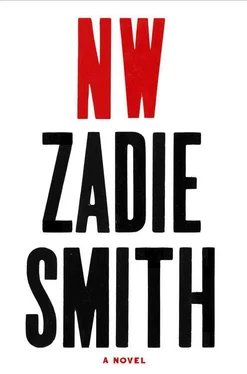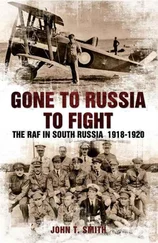Water shortage. Food wars. Strain A-H5N1. Manhattan slips into the sea. England freezes. Iran presses the button. A tornado blows through Kensal Rise. There must be something attractive about the idea of apocalypse. Neighborhoods reduced to scavenging zones. Setting up schools in abandoned supermarkets and churches. New groupings, new connections, multiple partners, children free of all this dull protection. On every street corner music streaming out of giant jerry-rigged sound-systems. People moving in great anonymous crowds, leaderless, in wave formations, masked, looking for food, weaponry. “Steam rushing” Caldwell, on a Sunday, running down the halls in packs, ringing every bell. Those were the days. Weren’t they, Leah? Those were really the days. Pass the whisky. Because it’s a facile comparison: you can’t be responsible for a complex economic event in the same way you’re responsible for going out on the street with the intention to steal. Pass the coffee. It’s not any coffee, it’s extremely good coffee.
— It’s just disappointing.
— It’s so disappointing.
— Especially when you’ve really gone out of your way to help somebody and they just throw it back in your face. That’s what I can’t stand. Like actually what happened with Leah — Lee tell them about the girl.
— Sorry?
— The girl in the headscarf. Who came to the door. It’s a really sad story. All right: I’ll tell it—
It’s only when they have been kissed on both cheeks, when the heavy front door closes, when they are released once more into the night, that Leah and Michel come alive. But even this camaraderie of contempt can quickly fall apart. By the time they reach the mouth of the tube, Leah has somehow said too much, complained too much, and the delicate spirit level of their relation, their us-against-them, slips, and shows a crooked angle.
— Don’t you think they’re as bored as you are? You think you’re somebody special? You think I wake up every day so happy to see you? You’re a snob, just in the other way. Do you think you are the only one who wants something else? Another life?
They ride home in silence, infuriated. They walk through Willesden in silence. They come to the door in silence, both reaching for separate keys at the same time. They do comic battle at the keyhole, and Leah is the one to crack. By the time they are in the hallway they are laughing, and soon after, kissing. If only they could be alone all the time. If the world was just you and me, says Leah, we’d be happy all the time. You sound just like them, says Michel, and puts his tongue in his wife’s ear.
The next morning, they arrive in the kitchen in mellow mood, in t-shirts and pants, sloping into the wide expanse of a Saturday morning. Leah goes to check the post. She sees her first. Innocent, beloved little animal, cold, not yet stiff, far from her bed, under the table in the box room, on her side. Bloody foam at her mouth. Michel! Michel! It won’t come out loud enough. Or he is in the garden, admiring the tree. The doorbell goes. It is Pauline. Olive’s dead! She’s dead! Oh my God! She’s dead! Where? Says Pauline. Show me. It’s the nurse in her. And when Michel comes and sees and is no less hysterical than Leah, Leah is surprised how grateful she is for her mother’s practical way of being in the world. Leah wants to cry and only to cry. Michel wants to go over and over the order of events. He wants to establish a timeline, as if this would change anything. Pauline wants to make sure the area under the table is made antiseptic and that the shoebox is buried at least one foot under the communal grass. No point asking the others, says Pauline — meaning the other occupants — they’ll only say no. Hurry up now, she says, try and pull yourselves together. We need to get this done. Have some tea. Calm down. She asks: did it not occur to you she didn’t bark when you came in?
It could be said that one of Michel’s dreams has come true: they have gone up one rung, at least in the quality and elaboration of their fear. It is in Leah’s nature to blame Michel for this — their new wariness, the Chubb lock, the fact he now picks her up from the station, the way they cross the street to avoid “certain elements” and continually discuss moving out. Michel is longer at the computer, dreaming of a windfall that will transport them to another urban suburb more to his taste, which means more African, less Caribbean. To which Leah offers no comment. She is submerged, July is a lost month. She lets these little changes happen, up there, on the surface, while she walks on the bottom of the ocean. She is in terrible mourning. She is unfamiliar with the rules concerning the mourning of animals. For a cat: one week. For a dog, two will be tolerated, three is to begin to look absurd, especially in the office where — in the Caribbean spirit — all animals smaller than a donkey are considered vermin. She is mourning for her dog. She thinks the sadness will kill her. Spotting one of Olive’s many twins shuffling up the Edgware Road, suffering in the heat, she is overcome. At work, Adina squints at her puffy tear-stained face. Not still the dog. Still? And if it is indeed false consciousness, if the mourning is for something other than her dog, it can make no practical difference to the mourner: it is Olive that she knew, and Olive whom she misses. Leah has become the sort of crazy person who stops other dog owners in the street to tell them her tale of woe.
Walking back from a training day in Harlesden she finds herself lost in the back streets. She takes a series of random left turns to keep moving, to lose a surely innocent hooded stranger, and then here is that strange little church again, tolling six o’clock. She goes in. Half an hour later she comes out. She does not tell Michel or anybody. She begins to do this most days. In late July, Michel insists: they must go forward. Leah agrees. They are placed on the NHS waiting list. But every morning, she locks the bathroom door and takes her little contraceptive pill. Stolen boxes from Natalie’s bathroom cabinet, hidden in a drawer. She doesn’t want to “go forward.” For Leah, that way is not forward. She wants just him and her forever.
August comes.
August comes.
• • •
Carnival! Girls from work, boys from the salon, old school friends, Michel’s cousins from south London, all walk the streets with a million others. Seeking out the good sound systems, winding their bodies close to complete strangers and each other, eating jerk, ending up in Meanwhile Gardens, stoned in the grass. Usually. Not this year. This year they finally accept Frank’s annual invitation to a friend of a friend’s with “an amazing carnival pad.” An Italian. They turn up early on the Sunday morning, as advised, to get there before the street is closed off. They feel a bit stupid, wandering around the empty flat of people they do not know. No sign of Frank or Nat. Michel goes to help in the kitchen. Leah accepts a rum and Coke and sits in a corner chair, looking out the window, watching the police lining up along the barricades. In the corner of the room a television talks. It talks for a long time before Leah notices it, and then only because it names a local road, one street from her own.
— on Albert Road, in Kilburn, where yesterday evening hopes for a peaceful carnival weekend were marred by reports of a fatal stabbing, here, on the border of the carnival route through North West London, as people prepared for today’s festivities—
• • •
Albert Road! shouts Michel, from the kitchen. Leah shouts back:
— YEAH BUT IT’S GOT NOTHING TO DO WITH CARNIVAL–IT WAS LAST NIGHT. IT’S JUST—
Michel walks through the door.
— it’s just typical sensational reporting. They want there to be—
Читать дальше











